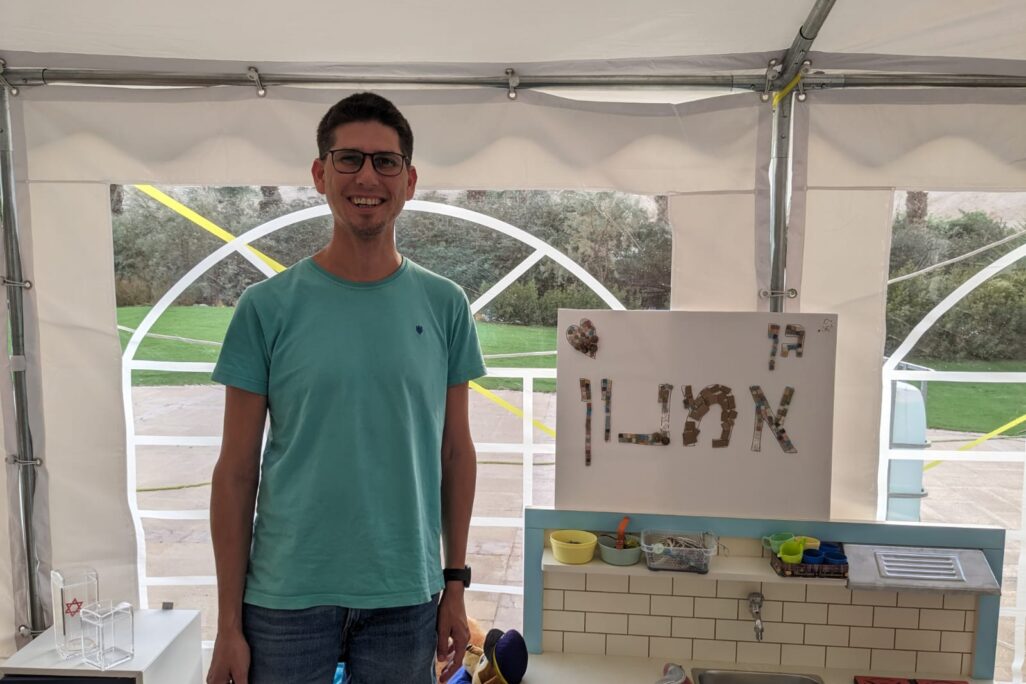
With colorful toys, arts and crafts, children’s laughter, songs about a busy bee, and a poem by Hebrew poet Hayim Nahman Bialik, Kibbutz Be’eri’s new kindergarten complex is probably the happiest place in the David Dead Sea Resort, the hotel to which members of Kibbutz Be’eri have been relocated following the Oct. 7 attack.
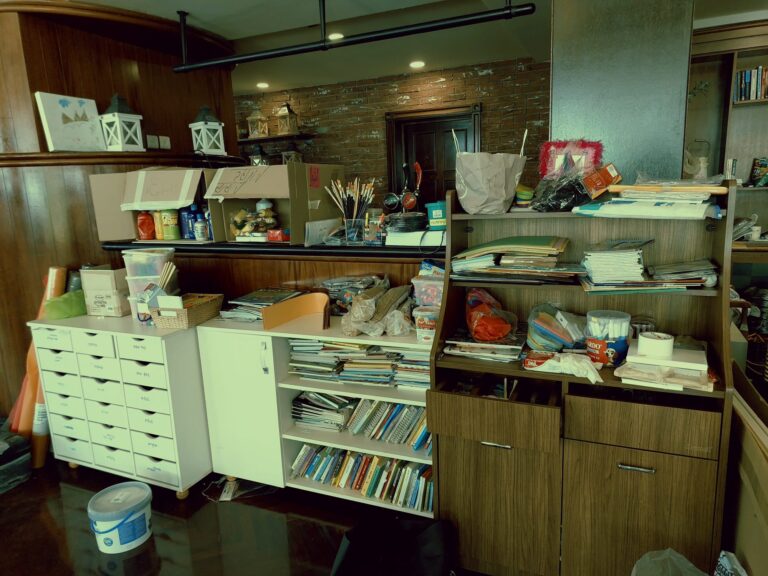
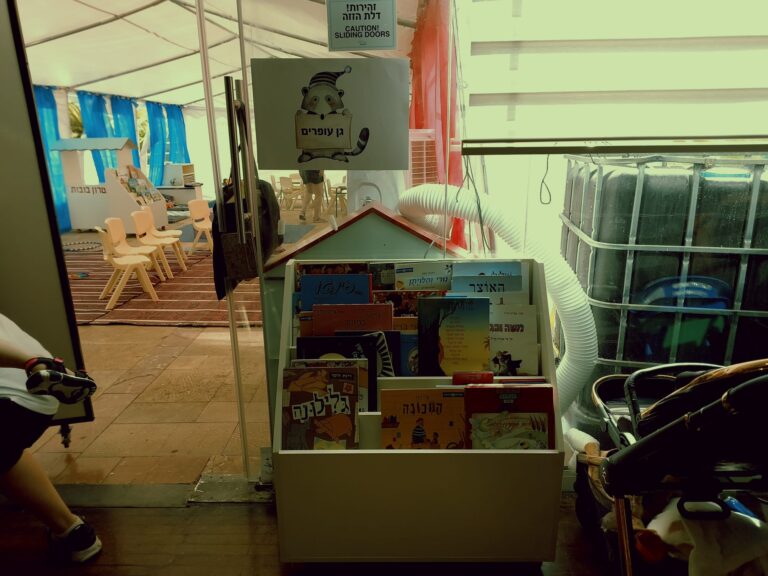
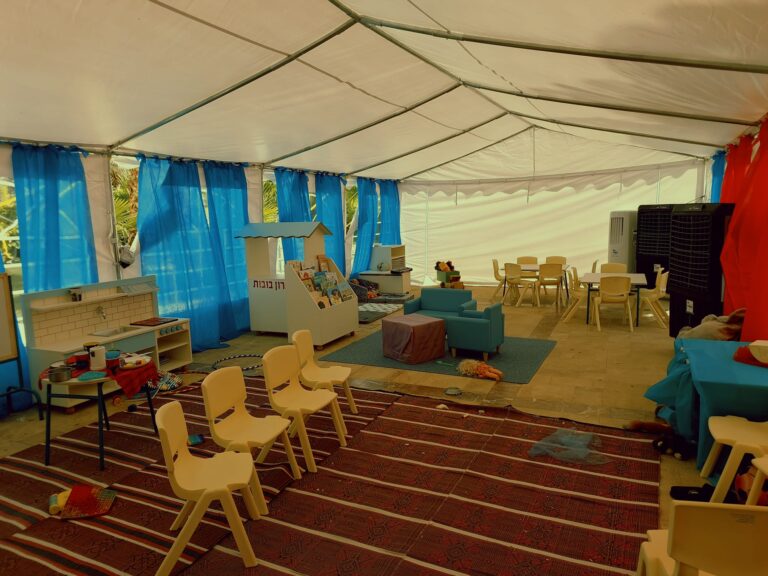
Two weeks ago, members of the Dror Israel movement school system established six kindergartens for the children of Kibbutz Be’eri. The entire community was evacuated to the Dead Sea after the Oct. 7 attack, in which 10% of the kibbutz’s residents were murdered.
Each kindergarten is demarcated with colorful ropes and a sign marking the kindergarten’s name. Two of them are set up in tents outside. The complex has craft areas, games for children, and parents’ corners. There are plans to open a nursery as well.
“This is my call to action, what I have to do now,” says Ido Blander, 40, a kindergarten teacher at Amnon kindergarten, which serves children from Be’eri ages 4-6.
For the past nine years, Blander has been working as a kindergarten teacher in the public system. At the beginning of the war, he was drafted into the reserves in the Home Front Command, where he serves as a police officer. When he received word of an urgent need for kindergarten teachers for Be’eri’s children, he wanted to be there, but realized that he was needed in the army.
Later in the week, the situation changed.
“I realized that another company of the Home Front Command was planned to arrive in the area, and I made an unusual request from my company headquarters: to go to Be’eri,” Blander says. “I told her, ‘I’m a better kindergarten teacher than I am a police officer.’ She was moved and gave me permission to go. I am here on behalf of my reserves company, which is very empowering.”
“We arrived here on Sunday, a week after the disaster, with the goal of setting up the kindergarten on Tuesday,” he continues. “This required a lot of preparation: physically setting up the kindergartens, forming the educational team, inviting a psychologist to talk with the staff, conversations with the parents, and building an educational plan. You can say that the preparation of two months to open a kindergarten was shrunk to two days.”
Blander’s staff includes Efrat, a retired kindergarten teacher, Yovav, an educator, youth from Be’eri, and Ofri, a volunteer in his pre-army service year, who already knew the children. He said that kindergarten teachers were called into this kind of work from all over the country at the outbreak of the war.
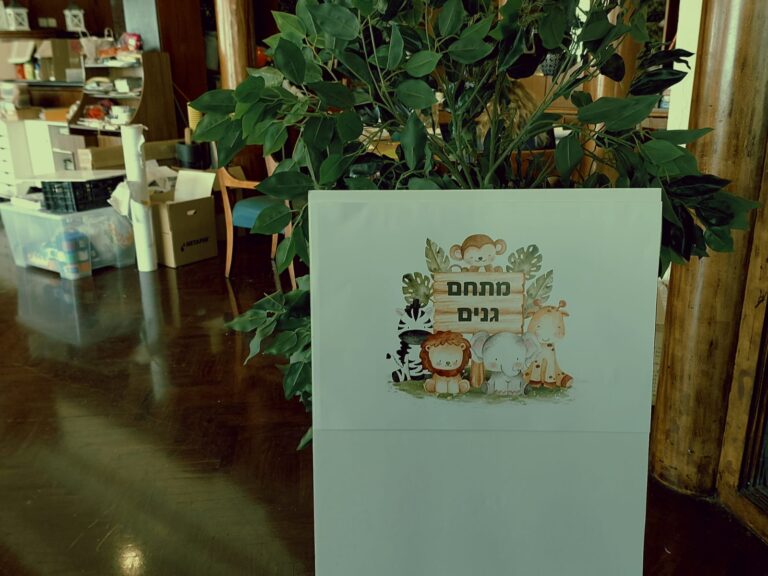
In these brand new kindergartens, meeting with team members who know the children from before the disaster has special meaning. Tal, who ran a sports class in the kindergartens in Be’eri, came to run the class in the renewed kindergartens as well, much to the joy of the children.
“The children really connect with the figures they know,” Blander says. “The familiar has great meaning.”
Setting boundaries is a complex educational issue, especially at this time. At the end of the activity day, two little ones riding small bicycles are gently asked to leave the kindergarten complex, which has closed.
“Dealing with a child’s separation from his parents takes on a different perspective when that child has been with the parent for 20 or so hours,” Blander says. “The key is providing security and trust. It is possible that setting boundaries is a tool for creating security and trust, but it is not the goal.”
The kindergarten day begins at 8:30 a.m., when the children eat breakfast in the hotel dining room. Until 9:30 there is free time for games while waiting for all the children to arrive. At 9:30 a.m. there is a morning activity. After that there is craft time, classes, and outdoor activities, until lunch at 1:00 p.m.
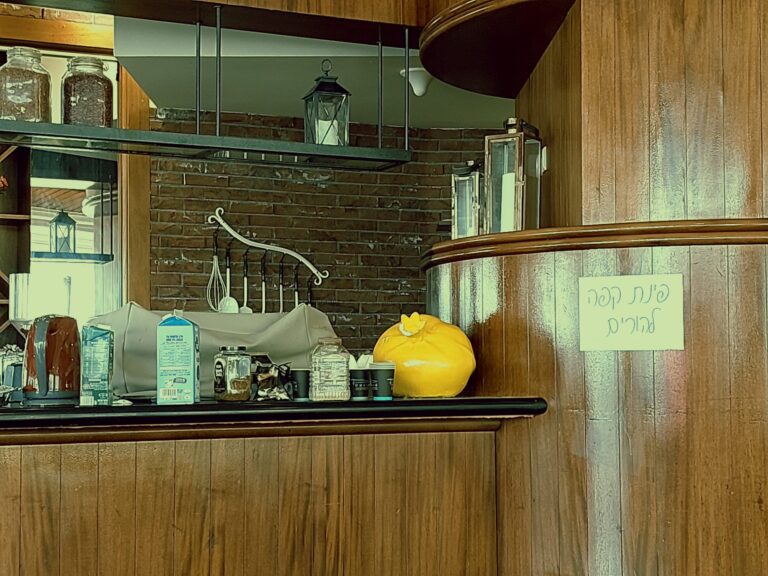
The activities resume at 2:00 p.m. and end at 4:00 p.m. After each day, there is a team meeting to sum up the day and a conversation about thoughts and plans for the next day’s activities.
The number of participating children has increased over time.
“We are very attentive to the parents,” Blander explains. “They say how much of a framework the children need, how much they need to let loose. This listening gives parents and children the confidence that allows them to come.”
“Without the pedagogical and organizational power of Dror schools, and without the choice of the Kibbutz Be’eri community to survive despite the terrible disaster that befell it, it would not have been possible to revive the kindergartens here,” Blander says.






